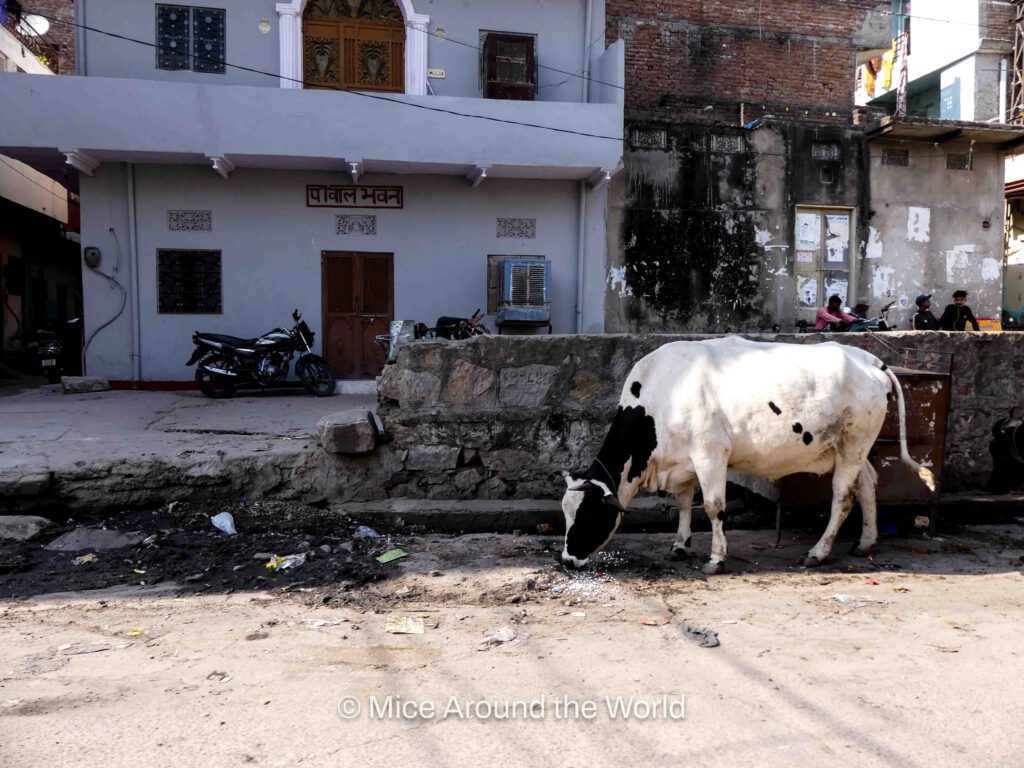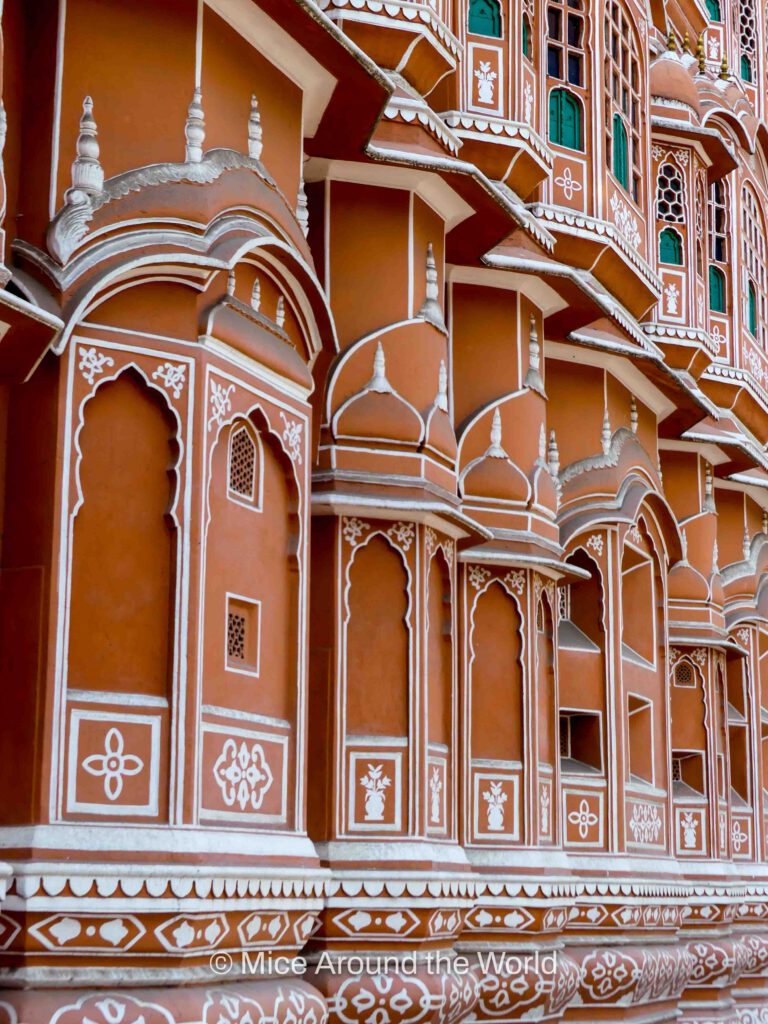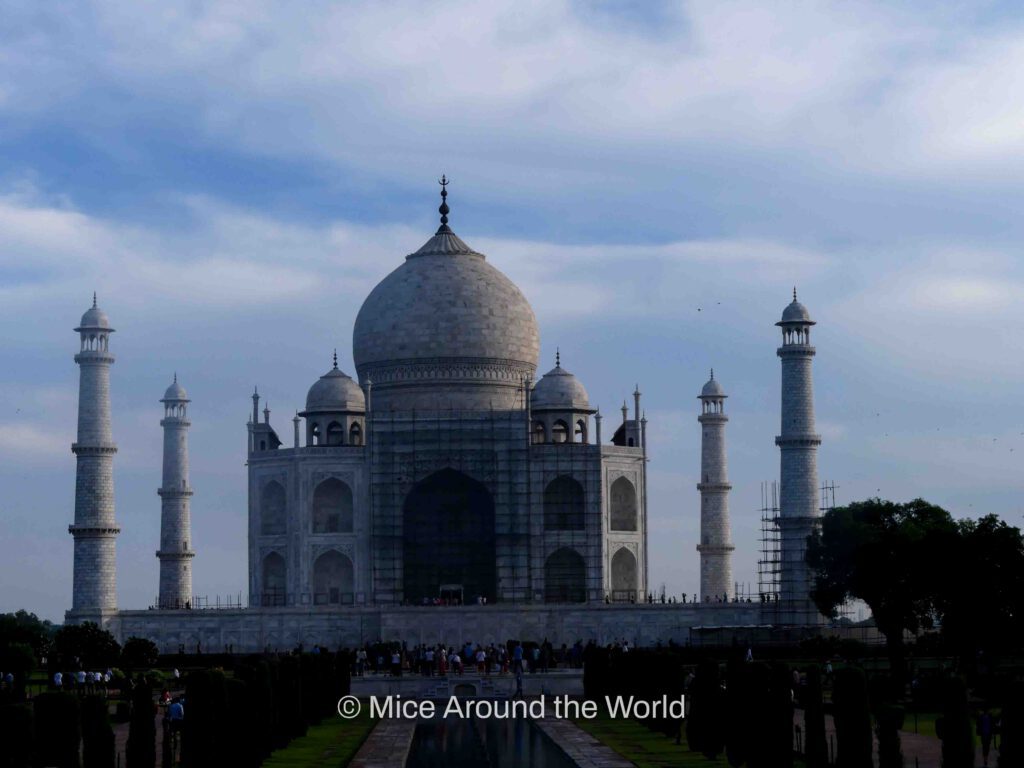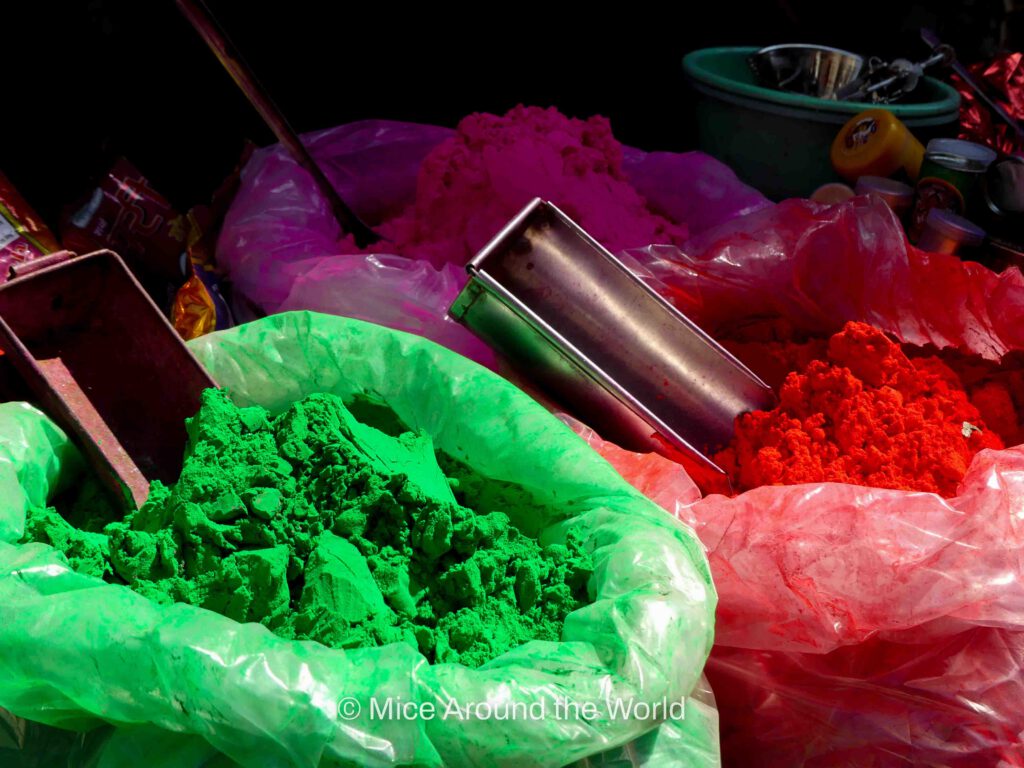When you’re travelling to India, you’ll see cows roaming around the street everywhere. They’re usually very friendly and block the road, completely unsuspecting of the traffic jam they cause. It’s honestly quite funny to witness sometimes. Cows are very important in Hindu India and are more than just farm animals. They have a big influence on the religion, culture, and economy of India and are worshipped by the majority of people in the country. Before going to India, it’s good to have some background information about the country. We’ll dive into the world of cows in India, revealing their significance, unique facts, and how they shape the country’s cultural landscape. And you’ve come to the right place because in this article we’ll explain everything about cows in India.

Cows in Hinduism
Cows hold a sacred status in Indian culture and religion, particularly in Hinduism. They are considered gentle, nurturing beings and are often referred to as “Gau Mata” or Mother Cow. These gentle giants are seen as symbols of purity, abundance, and divinity. Because they give milk, they are seen as sacred because they will provide the Indian community with food in bad times. Don’t be surprised if you see locals giving them a friendly nod, feeding them or praying to them, in Hinduism, cows are associated with gods. To help you understand why the cow is seen as holy in Hinduism, we’ll explain a bit more about some of the most important gods.
Lord Shiva
This god is one of the big three and is known as Mahadeva or the Great God. Shiva is the lord of creation, preservation, and destruction. You can recognize him with long hair in a meditative pose, a third eye on his forehead, decorated by a crescent moon on his head and a snake crawling around his neck. He is seen as the god of enlightenment and spiritual liberation by destructing ignorance and illusions. Shiva is very often pictured together with his bull Nandi. This cow is his divine vehicle and companion and represents strength and loyalty.
Lord Brahma
Lord Brahma is the creator of the universe in Hinduism and is also called the Creator God. You can recognize him by his four faces, beard and multiple arms that show his knowledge and creative abilities. He is responsible for bringing life into existence and creating the world and all living beings, among which cows. Cows are seen as a sign of Brahma’s creative energy and talent.
Lord Vishnu
Lord Vishnu is responsible for keeping balance and order in the universe. He has long hair and four arms. To restore balance, Lord Vishnu has different appearances to protect the world from evil. Each appearance is meant to teach a lesson through their story and given a name, for example, Krishna. Krishna is very closely linked to cows.
Lord Krishna
One of the most popular appearances of Vishnu is called Krishna. His adventures and stories are meant to teach righteous living, moral dilemmas and selflessness. He was born in Mathura and grew up in Vrindavan, where the famous Holi festival originates from every year. You can recognize him with blue skin, a flute, and a peacock feather in his hair. As Krishna spent his childhood taking care of cows, he is seen as the protector of cows (Gopala or Govinda).
Cows hold an important role in Hindu rituals and worship. In Indian households, it is common to offer prayers and seek blessings from a cow. During festivals like Govardhan Puja, cows are decorated and worshipped to express gratitude for their contributions to society. India is home to the largest population of cows in the world, an astonishing average of 300 million (!!). That’s right, you’ll find cows in all shapes, sizes, and colours across the country.
Interesting facts about cows
Cows are an integral part of the country’s identity and a reflection of its values and traditions. There are many breeds like Gir, Sahiwal, Tharparkar, and Red Sindhi. Indian cows often have a distinctive hump on their shoulders and a large dewlap. But there’s more to the Indian cow than just animals being sacred. They are of big economic importance as well. Dairy farming is one of the most important jobs for rural Indians, as it is the number one source of food. The poop of these animals is used for fuel, fertilizer and in traditional ceremonies. The poop is collected not only in rural areas but also in the streets by the less fortunate to make a living.
The cows roam freely on the streets in most parts of India, but some of them are owned by people. They wander around the street during the day and return to their owners’ homes at night. Cows are loyal animals and are typically treated like gods, so they return every day. They’ve got some serious GPS skills!
Generally, cows are treated with care and compassion. Many people feed the cows and provide them with water, even the stray cows. In Hinduism, this is seen as an act of kindness and good karma. When it comes to the treatment of cows in India, kindness is key. The concept of “ahimsa” or non-violence runs deep in Indian culture, promoting compassion for all living beings, including animals. You’ll find that cows are treated with utmost respect and care, and many families consider it an honour to offer them food and shelter.
Unfortunately, there are so many cows in India that not all of them can be fed and taken care of. You’ll see them grazing between burning plastic, searching for something to eat. Sometimes they get injured or just become old and sick, which makes their lives incredibly hard. Fortunately, there are amazing dedicated cow shelters called “gaushalas” or “gomayams”.
What happens if you kill a cow in India
To protect cows, there are laws against slaughter and consumption in several Indian states. Laws like these are meant to protect the cows and respect the holy animals. That’s why killing a cow in India can have serious consequences. Laws regarding cow slaughter vary across different states, but in many places, it is illegal. Punishments can include fines, imprisonment, or both. Additionally, there may be social and religious consequences, and incidents of violence by locals have happened. It’s important to respect local laws and cultural sensitivities when it comes to cows in India. So, if you’re a meat lover, it’s time to embrace the mostly vegetarian Indian kitchen and enjoy the delicious meat-free options available. There are plenty of Indian dishes like paneer or Dahl that are worth a try. Respecting culture also means not showing off cow leather products.






